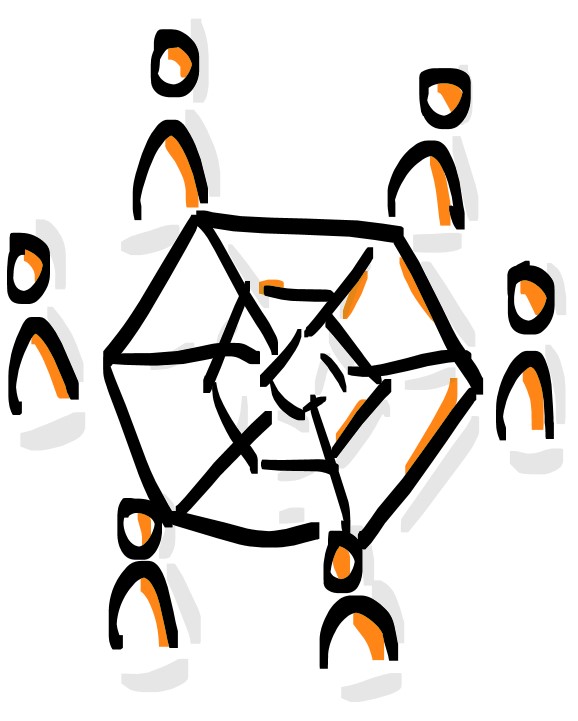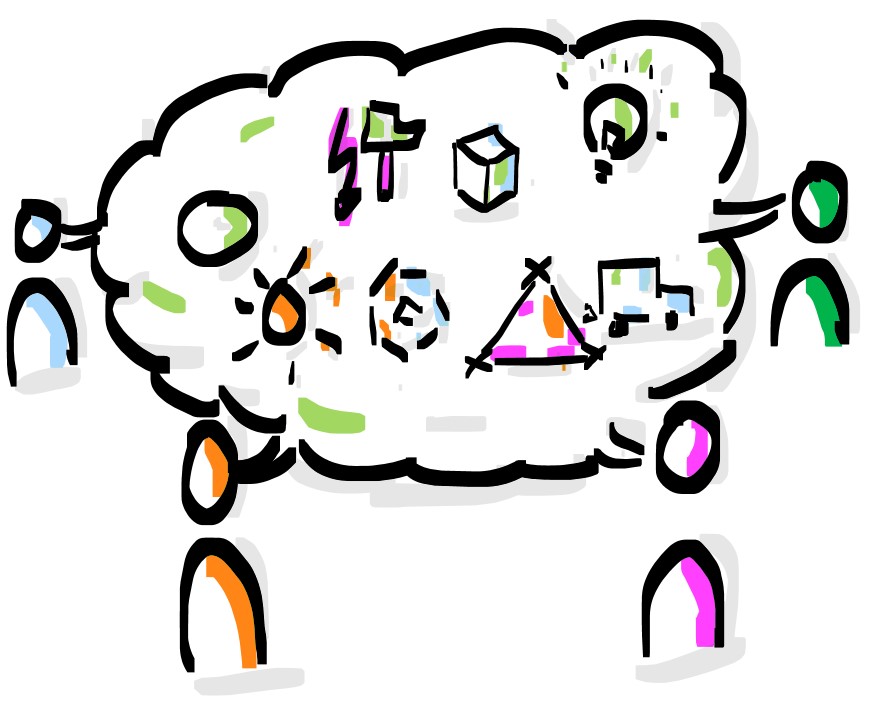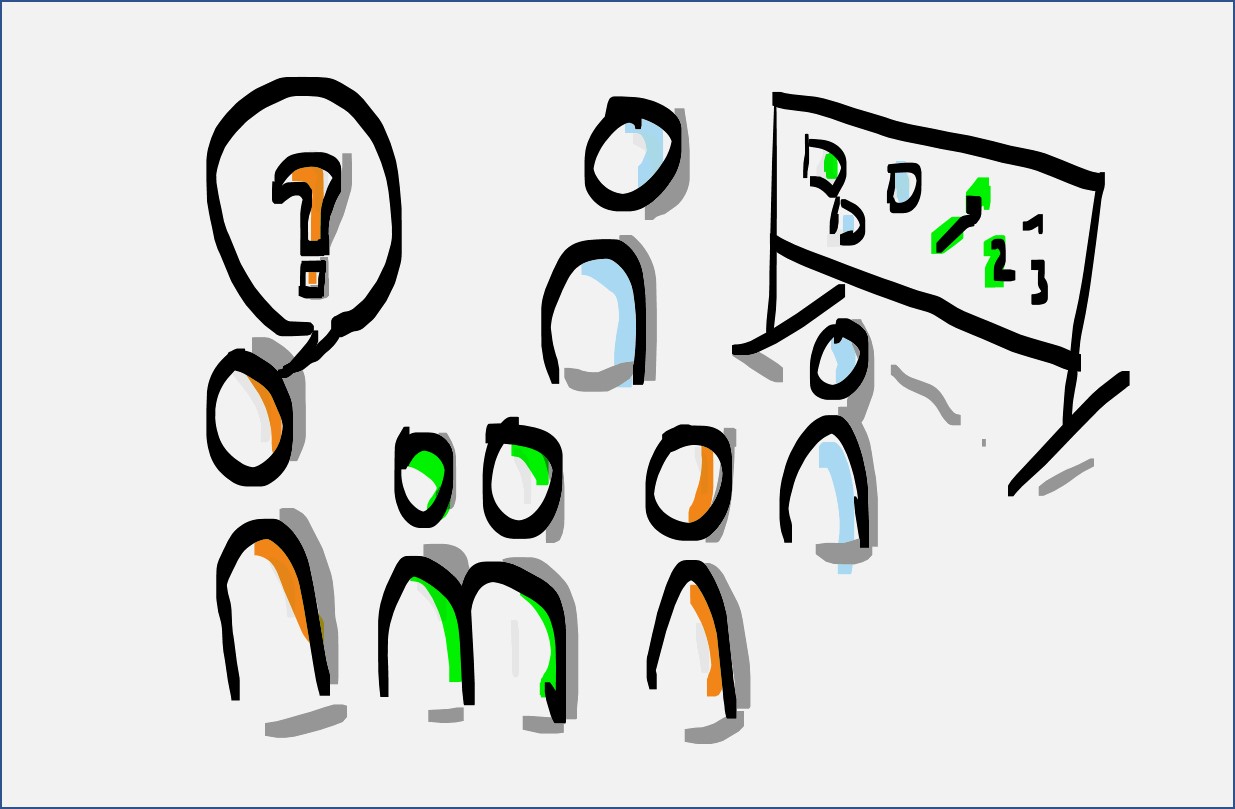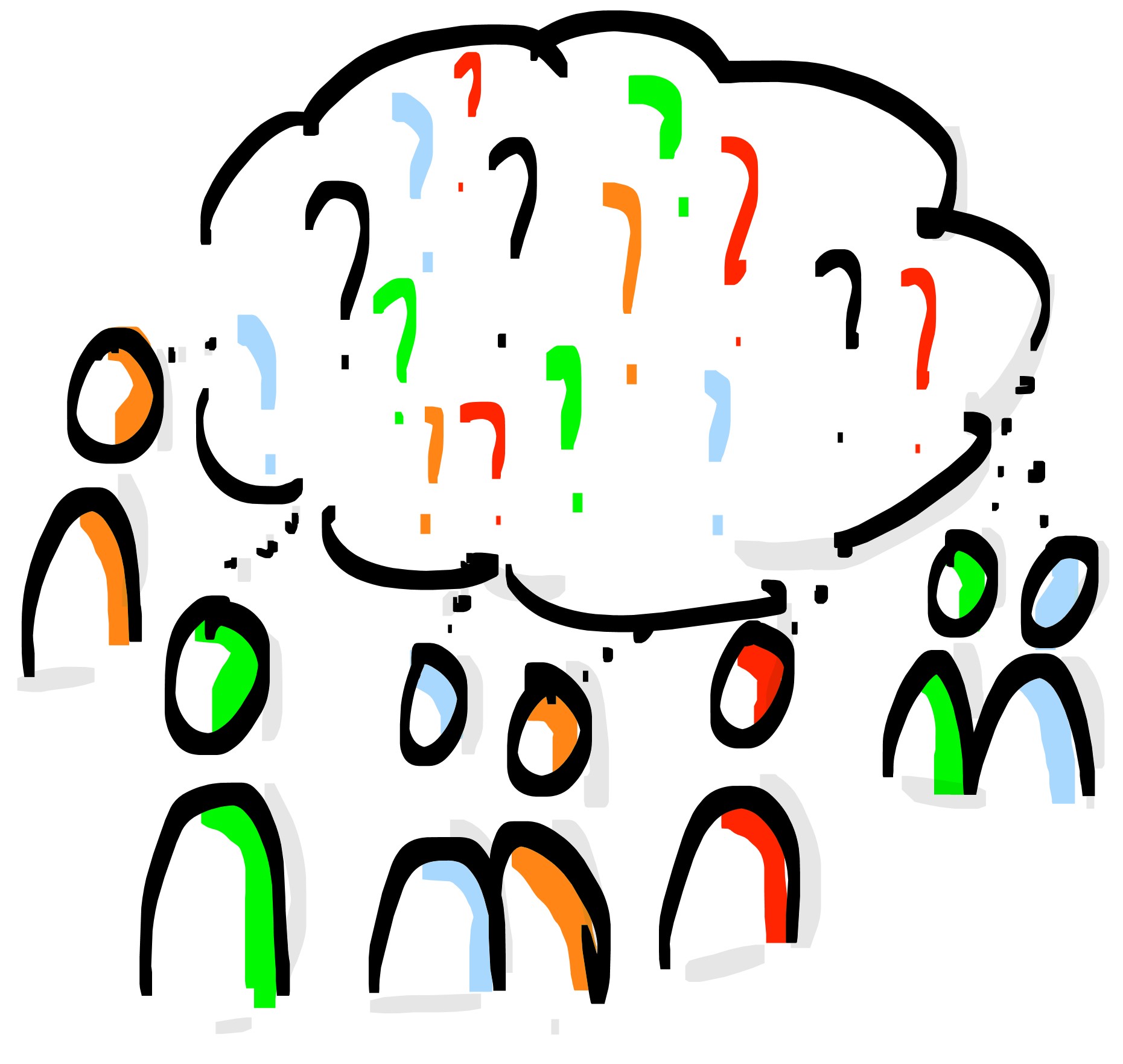Especially today, with so many of us working from home, one question is becoming increasingly important: What actually is a team?

What Defines a Team?
One might think that this discussion has been exhaustively covered; after all, teams were the subject of much and frequent philosophizing early on. Nevertheless, the topic comes up with some regularity, and perhaps especially so today. Because today many of us work from home a great deal of our time. And once again we are challenged to imagine that team with which we normally would spend our time when no Covid pandemic is hindering us to come to the office.
To deal with this question over and over again
is a natural, inevitable process and a healthy development in collaborative ventures. People are always driven by two questions: Why? And: how?
Because we constantly find ourselves in situations in which we want or need to work together with others. That’s voluntarily or involuntarily, consciously or unconsciously. Whether we like it or not, we at least temporarily form teams that have a minimum of one common interest, one explicit or implicit common “mission”.
Sometimes it is just an idea of what collectively can or should be achieved. Based on one’s own needs and experiences, however, everyone interprets this “mission” differently. In all cases.
 When the questions arise:
When the questions arise:
“Are we a team?” and “What makes us a team, group, network of colleagues, family, circle of friends, band, theater group, etc.?” are the first questions on my mind to clarify what the alliance of people wants to achieve together.
So, what is it? In this context, my colleagues Jan Fischbach and Wolf Steinbrecher once spoke of “goal” and “product”. I call it result. Namely, the result that defines where the group wants to go. And in general.
The sole focus
on materialistic things, a concrete product – as important as this may be in everyday work – rather causes unpleasant developments in my experience and often blocks better performance.
It is certainly more beneficial for the concrete team result, the solid success if immaterial things are generally and positively placed in the center of everyday activities. For me, that means human values and meaning, above all. Because that leaves more room for each member to identify with the common mission and to contribute maximally well with all his talents and abilities.

Most people, however, are likely to
be are more interested in the more practical side of why and how of a team. After all, as mentioned, we usually find ourselves quickly and unexpectedly in situations in which we voluntarily or involuntarily work together as a community, as a team.
If so, employees, colleagues, supervisors, owners, children, sisters, brothers, mothers, fathers, students, teachers, principals, chief physicians, ward physicians, duty physicians, nurses, patients, association members, and boards – people of this like are always asking themselves:
What is to be done? What do I or we – now – stand up for? Generally and concretely? What do I want to achieve individually, and what do I want to achieve within the collaboration? Why? What is the benefit? How are my ideas compatible with those of the community? How do we best implement this? If we are already and for some, hopefully, good reason, (need to) work together: how do we do that to best achieve the jointly desired outcome?

Whoever succeeds
answers these questions for himself and in the interaction with the participants maximally honestly, openly and appreciatively (which means for me also without hierarchy), will be successful.
Because in such a process, the important answers are found, contentious issues (e.g., conflicting interests) are well discussed and settled, and the path to the common goal is well navigated:
Goals will be clarified and made transparent, roles will be made clear, and areas of responsibility and tasks will be defined, thus providing organizational meaning. This creates a genuine and honest basis for motivation and performance. This is what matters in teamwork, in collaboration, in cooperation.
So, from time to time, if they are good, teams ask themselves from time to time whether they are still as good as they can be: “How can we get better? What does it take?”
Especially today, with so many of us working from home, one question is becoming increasingly important: What actually is a team?

What Defines a Team?
One might think that this discussion has been exhaustively covered; after all, teams were the subject of much and frequent philosophizing early on. Nevertheless, the topic comes up with some regularity, and perhaps especially so today. Because today many of us work from home a great deal of our time. And once again we are challenged to imagine that team with which we normally would spend our time when no Covid pandemic is hindering us to come to the office.
To deal with this question over and over again
is a natural, inevitable process and a healthy development in collaborative ventures. People are always driven by two questions: Why? And: how?
Because we constantly find ourselves in situations in which we want or need to work together with others. That’s voluntarily or involuntarily, consciously or unconsciously. Whether we like it or not, we at least temporarily form teams that have a minimum of one common interest, one explicit or implicit common “mission”.
Sometimes it is just an idea of what collectively can or should be achieved. Based on one’s own needs and experiences, however, everyone interprets this “mission” differently. In all cases.
 When the questions arise:
When the questions arise:
“Are we a team?” and “What makes us a team, group, network of colleagues, family, circle of friends, band, theater group, etc.?” are the first questions on my mind to clarify what the alliance of people wants to achieve together.
So, what is it? In this context, my colleagues Jan Fischbach and Wolf Steinbrecher once spoke of “goal” and “product”. I call it result. Namely, the result that defines where the group wants to go. And in general.
The sole focus
on materialistic things, a concrete product – as important as this may be in everyday work – rather causes unpleasant developments in my experience and often blocks better performance.
It is certainly more beneficial for the concrete team result, the solid success if immaterial things are generally and positively placed in the center of everyday activities. For me, that means human values and meaning, above all. Because that leaves more room for each member to identify with the common mission and to contribute maximally well with all his talents and abilities.

Most people, however, are likely to
be are more interested in the more practical side of why and how of a team. After all, as mentioned, we usually find ourselves quickly and unexpectedly in situations in which we voluntarily or involuntarily work together as a community, as a team.
If so, employees, colleagues, supervisors, owners, children, sisters, brothers, mothers, fathers, students, teachers, principals, chief physicians, ward physicians, duty physicians, nurses, patients, association members, and boards – people of this like are always asking themselves:
What is to be done? What do I or we – now – stand up for? Generally and concretely? What do I want to achieve individually, and what do I want to achieve within the collaboration? Why? What is the benefit? How are my ideas compatible with those of the community? How do we best implement this? If we are already and for some, hopefully, good reason, (need to) work together: how do we do that to best achieve the jointly desired outcome?

Whoever succeeds
answers these questions for himself and in the interaction with the participants maximally honestly, openly and appreciatively (which means for me also without hierarchy), will be successful.
Because in such a process, the important answers are found, contentious issues (e.g., conflicting interests) are well discussed and settled, and the path to the common goal is well navigated:
Goals will be clarified and made transparent, roles will be made clear, and areas of responsibility and tasks will be defined, thus providing organizational meaning. This creates a genuine and honest basis for motivation and performance. This is what matters in teamwork, in collaboration, in cooperation.
So, from time to time, if they are good, teams ask themselves from time to time whether they are still as good as they can be: “How can we get better? What does it take?”
 When the questions arise:
When the questions arise: